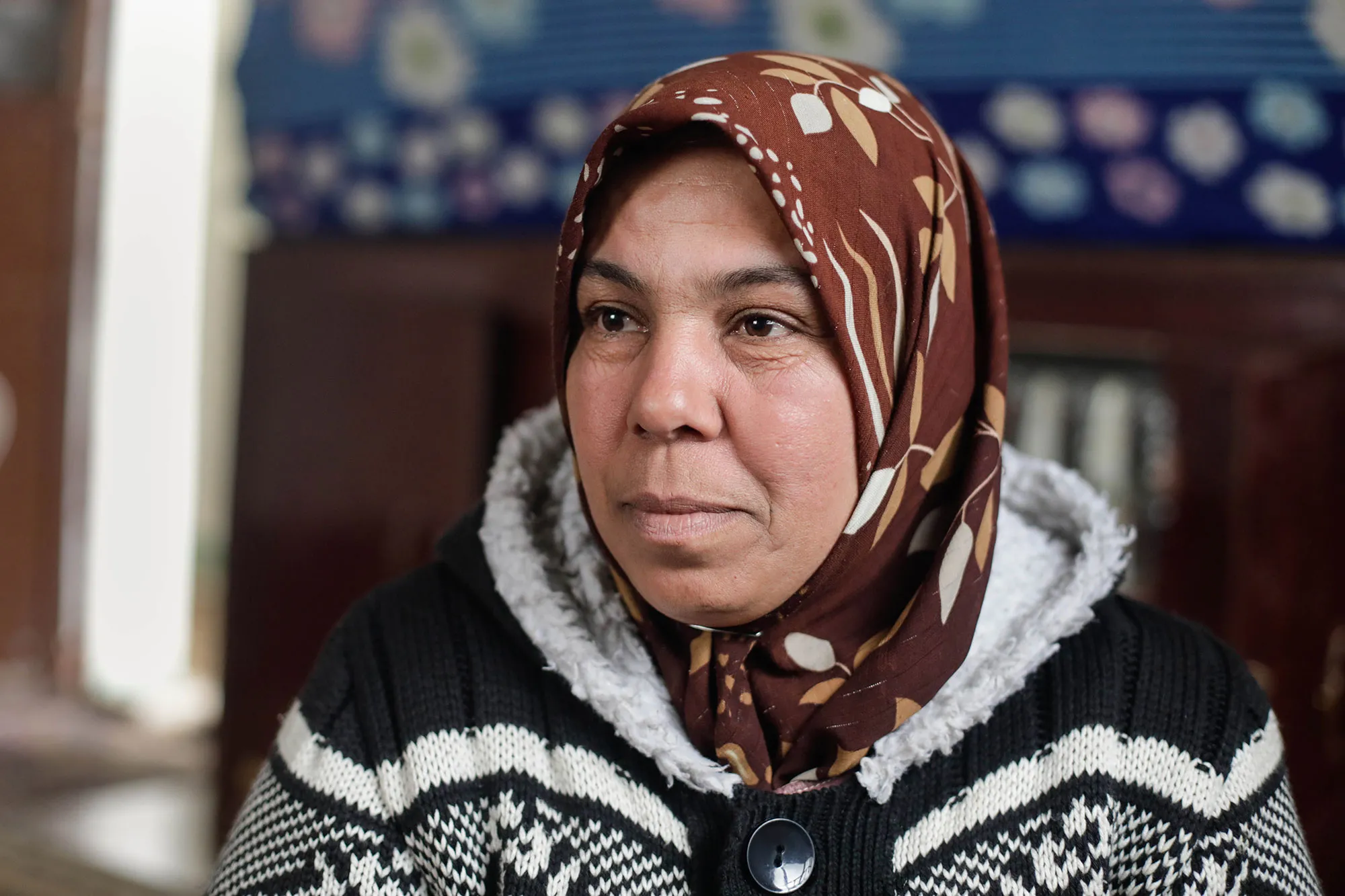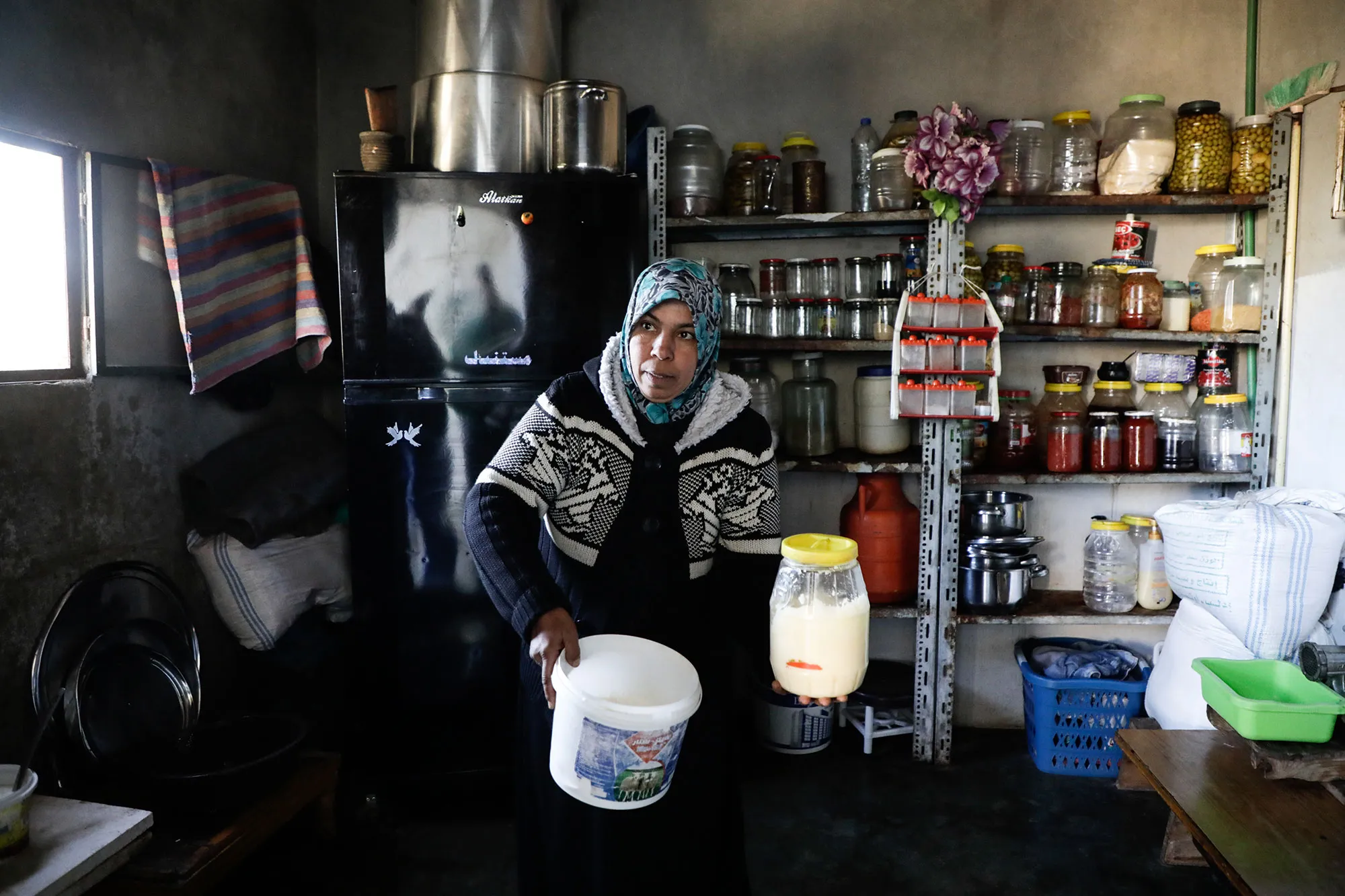Fourteen years ago, Salma’s husband died, leaving her and their six children behind. “It was a very difficult time for me, but when I started working on a farm, things got better, and I was able to provide for my children,” says Salma, 47. But in 2011, just as her family was regaining a sense of stability, the war in Syria started.
The fighting eventually reached Salma’s village, causing people to flee. Salma didn’t know what to do and had no one to rely on.
“I looked at our small motorcycle, took my six children, one on top of the other so we would all fit, and carried the bare necessities in my hands,” she says. “I remember that day I couldn’t help but cry.”
Eight years of war have displaced 13.5 million people — more than half of the country’s pre-war population — and over 5 million Syrians are now refugees. 11.7 million people need humanitarian assistance. The crisis has hit women and children the hardest.
“I lost my job when the war started. I had no income and could not buy food for my children,” Salma says.
I looked at our small motorcycle, took my six children, one on top of the other so we would all fit, and carried the bare necessities in my hands.
The war has destroyed over 50 percent of basic social infrastructure in Syria, and it is estimated that three in four people are not involved in any income-generating activities. The unemployment rate is staggeringly high. When the fighting in their village stopped, Salma and her children returned home. She found some work on the farm again, but it was not enough to cover basic needs.
As part of the Syria Resilience Consortium, CARE and other organizations support women through economic empowerment and livelihood programs. Since 2016, the consortium has helped over 1 million women in desperate need in Syria.


